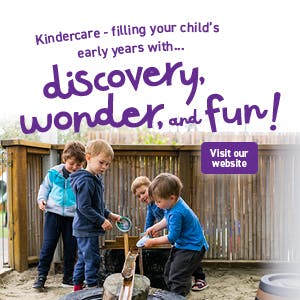Typically responds within
A few hours
Vacancies
Taking enrolments
Limited availability
The centre is licensed for 70 children, with a license for
15 children under two years of age and 55 children over 2 years of age . The
children at the centre have the opportunity to spend time in the Manuka Room (
0-2 years), Kowhai Room ( 2 – 3 and half years) and Pohutakawa Room ( 3 and
half to 5 years).
The teaching team is strongly inspired by the Reggio Emilia approach. Our centre environment is very unique and acts as the third teacher for the child. The educators encourage open ended learning through provocations they provide within the centre environment. The identity of the capable and competent learner is visible throughout the centre. Strong relationships with children and their whanau are fostered and we actively work towards engaging with the community.
Why Us?
- Encouraging the use of natural materials
- A strong transition into school
- Teaching team inspired by the Reggio Emilia approach supports your child’s creative potential.
- Healthy, tasty hot meals cooked fresh
- 20 ECE hours available/free sessions for 3 year olds
- A boutique, homely feel to our centres
- Strong connections between teachers and whanau.
What will the children learn?
While some of these teacher provocations are planned, projects often move in unexpected directions due to the open ended nature of the provocation and also due to the immense potential of a child’s mind. Thus, program planning involves open-ended and often prolonged projects that are based on the teacher-child, child-parent and teacher-parent interactions. Projects also give children the opportunity to make a connection between what they know and what more can they know about the topic. Hence in its true sense, a project is considered a vehicle of learning.
The centre environments strongly reflects our inspiration – The Reggio Emilia philosophy, from Reggio Emilia, Italy.
The centre environment is one of its kind and is definitely worth a visit. The image of the child is very powerful and is strongly visible in the centres. The current whanau of children is very diverse and multi cultural. Our normal day involves a pleasant blend of the Reggio Emilia approach, diverse cultures and many open ended opportunities, all under the umbrella of Te Whaariki, the NZ early childhood curriculum. Our onsite chefs prepares hot and nutritious meals for children. A diverse menu incorporates the various cultures of the families. Teachers skillfully support children’s learning through meaningful experiences. Artifacts, re-cycled material and unique recourses are the special characteristics of the centre. We encourage a very strong and powerful image of the child. Detailed portfolios reflect the child’s learning. Families often contribute to the child’s development through their portfolios, through open discussions and through parent evenings.
All children over 4 years of age participate in a multifaceted Transition to School program.
Sessions, short days and full days are the options of enrolment available.
Our philosophy
Bright Beginnings Early Learning Centre believes in providing a creative and open ended environment which encourages infinite learning for the children and strong relationships between teachers, children and families.
Our proactive quality environment acts as the third teacher for our children. Teachers aim at spending quality time talking and listening to the children. Respect is the key word and it is emphasised in all aspects of the day, whether it is routines, educational program or interactions between children and adults.
There is flexibility in the day’s routines, at the same time care is taken that each individual child’s needs are recognised and respected.
We believe in partnership and as a team we focus on extending this respect to children, families and team members.
We provide a stimulating, unique and natural environment that allows children to engage in experiences that they plan and implement. We believe in giving children complete ownership of their learning and their experiences.
We work towards planning for the children in a triadic manner, with teachers, parents and children being completely involved with centre life.
